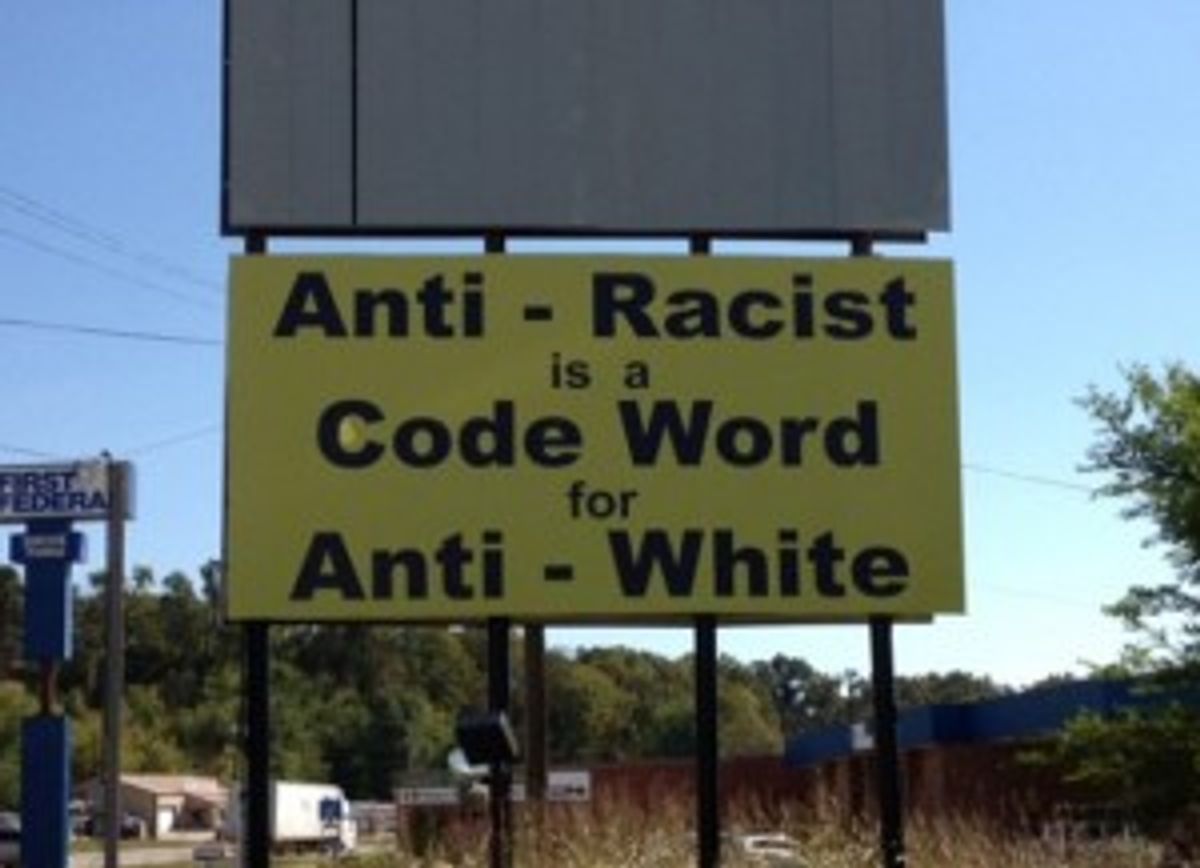 One thing was missing Tuesday night from a Black History Month presentation at the Boone County Library in Harrison, Ark.
One thing was missing Tuesday night from a Black History Month presentation at the Boone County Library in Harrison, Ark.
Black people.
There were at least 75 people packed into a library meeting room for the event but not one black person, according to Patty Methvin of the Harrison Community Task Force on Race Relations – a 10-year-old organization, which includes the Mayor of Harrison, the police chief and the head of the chamber of commerce, working mightily to improve race relations and the city’s racially charged image.
The Klan, however, did show up, including Thomas Robb, an Arkansas-based Christian Identity pastor and leader of the Knights Party.
“Fourteen racial patriots,” about half of them Knights Party members, filed into the meeting room just before the 5:30 p.m. starting time, Billy Roper, the notorious neo-Nazi son and grandson of a Klansman, said today in a post on the racist web forum Stormfront.
They went, Roper said, “to counter the Anti-White agenda of the ‘Community Task Force on Race Relations,’ which held their Black History Month presentation and hosted an NPR Jewess as a speaker.”
“We easily had the Antis matched, if not outnumbered,” Roper said. “I relished being able to be the first one present to put on my bright yellow ‘Anti-Racist Is A Code Word For Anti-White’ sticker and staring down the anti-White Mayor.”
The subject line on Roper’s post was “Klan vs. Antis Tues. Night.”
Jeff Crockett, the mayor of Harrison, which is 95 percent white, sighed deeply when he heard about Roper’s account. “That’s total BS about us being outnumbered,” Crockett told Hatewatch today. “There were close to 100 people there and almost everybody had come for the presentation and to commemorate Black History Month.”
Indeed, beyond Roper’s hyperbole, there were no fireworks during or after the one-hour presentation about the two race riots that chased Harrison’s black residents out of town more than 100 years ago and the present day efforts of the Task Force and the city of 12,000 residents to “foster and promote the image and reality of Harrison as a cohesive, warm community to all people of peace and goodwill, regardless of color.”
One of the speakers at the event was Jacqueline Froelich, a reporter for a Public Radio station in Arkansas and the co-author of an article published in The Arkansas Historically Quarterly titled “Total Eclipse: The Destruction of the African American Community of Harrison, Arkansas, in 1905 and 1909.”
At the end of the presentation, there was a 10-minute question and answer session. Most of the questions seemed to come from the people Roper called the “racial patriots.”
“They spread out and sat in different corners of the room,” said Task Force member Layne Ragsdale. “The questions were primarily about, ‘wasn’t this a play on white guilt?” Ragsdale said most of the people who raised their hands to ask questions had written them out beforehand and the questions “were long, more statement, than question.”
One man with the group said that Harrison was a safe city and that “we know crime has a color.” Ragsdale said she responded that crime has many factors – education, age, economic – “but it’s not color.”
“We agree that we want our community to be a safe vibrant place,” Ragsdale said she told the man. “Where we disagree is that I don’t believe color is the designed way you get there.”
Robb, the Klan leader, spoke near the end of the evening. “There was no confrontation,” Robb told Hatewatch today. “Everybody got along very good. The people of the Harrison Task Force for White Race Genocide were polite. This is a small town. I see them occasionally in town. I’m always polite to them. They’re always polite to me. Yesterday was no different.”
Robb said he has lived in the area for more than 40 years. He owns a compound where extremist events have been held about 15 miles outside of town, a fact the mayor of Harrison repeatedly points out.
Robb said he told the meeting that “I certainly agree that no one of any color should be harmed or mistreated.” He said, however, that since he did not witness the race riots 100 years ago and neither did anyone else at the meeting no one should “pass judgment pro or con.”
“But I think it’s wrong to just assume that the white people were bad,” Robb said, adding that “while blacks may have been driven from their town, according to what we’re being told, right today, 2014, we can witness millions, not hundreds, but millions of white people that have been driven from their homes – Detroit, Chicago, Cleveland and Memphis and every major city in the country.” Robb said his is not a message of hate, but a message of love “for my people.”
Ragsdale, the Task Force member, agreed that the Tuesday night encounter with the Klan was civil. “I think if they truly just wanted to focus on the idea of loving the white person, which is what they say, I don’t know why they wouldn’t use a different name,” Ragsdale said. “If that’s truly their mission to not be intimidating, why would you use a name that is filled with intimidation?
“I believe that’s kind of disingenuous,” Ragsdale said. “They want you to believe that the Klan has changed but they have not changed the name. If you’re under that banner that’s still what people are going to believe.”



Shares